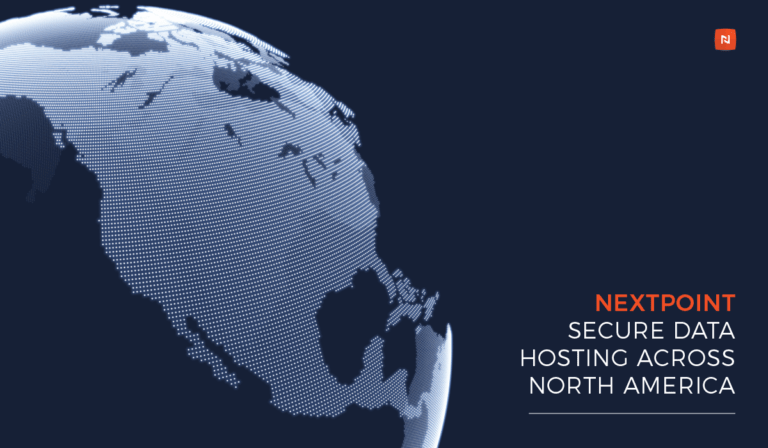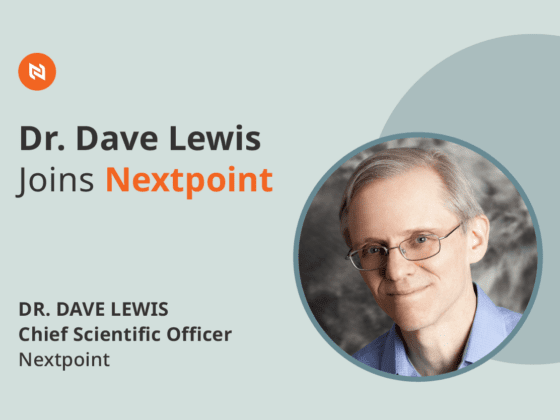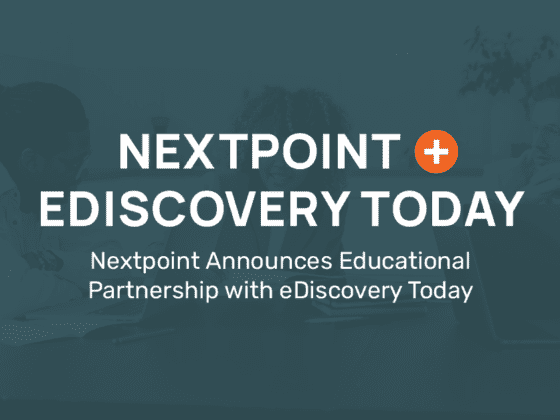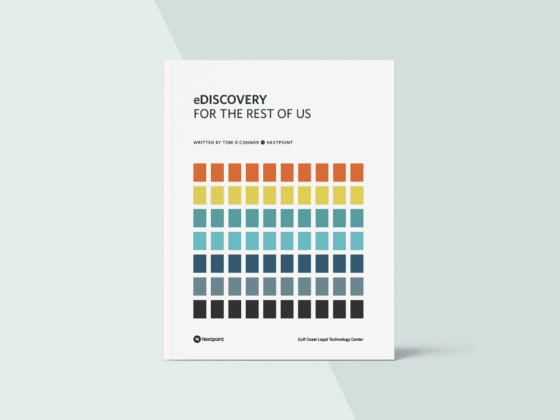Nextpoint launches new developments for legal software in Canada and California amidst recent changes to data privacy and security laws.
In May 2022, Nextpoint will begin hosting data on AWS servers in California and Canada, in addition to our current location on the East Coast. This will ensure our users can meet data privacy standards specific to these locations.
“We’ve been hosting data with Amazon Web Services for over 15 years, and we’re excited for this opportunity to expand our capabilities,” says Rakesh Madhava, CEO and founder of Nextpoint. “Not only will this expansion meet the requirements laid out in these jurisdictions, but it will improve speed and stability for all Nextpoint users.”
Our expansion to California comes just in time for a new privacy law that will go into effect in 2023. Passed in November 2020, the California Privacy Rights Act (CPRA) expands and clarifies the obligations and rights expressed in the earlier California Consumer Privacy Act (CCPA).
Days after the California legislature passed its new Privacy Rights Act, the Canadian government announced a plan to enact a similar law – the Canadian Consumer Privacy Protection Act (CPPA). As strict data privacy standards become increasingly widespread across jurisdictions, legal teams are left searching for ediscovery tools that can meet these requirements.
“I’ve spoken to potential clients who had limited options for ediscovery software because of these data hosting requirements,” says Sales Director Jeff Hoven. “We’re excited to be able to meet their needs and offer our world-class, secure data hosting to our customer base throughout North America.”
Although this launch is limited to Canada and California, it has prepared us to address restrictions that may emerge in new regions amidst rising concerns over data privacy.
“Our engineering team has been working for almost six months to figure out the ins and outs of replicating our production environment in different Amazon zones,” says Daniel D’Angelo, Head of Product. “After going through this process, we have the tools to continue to expand and meet the needs of our ever-growing base of users.”
After months of meticulous work from our software engineers, we will launch these new servers in May 2022, starting with Canada and then moving to California.
Data security has always been a top priority at Nextpoint, and the growing prevalence of consumer privacy laws is changing what this looks like in the ediscovery sphere. We remain as dedicated as ever to protecting our users’ data and helping them navigate the complexities of practicing law in a digital age.
Data Privacy Laws Explained
Conversations about data privacy are not limited to law and politics. We hear questions about our data everywhere we turn: Is Facebook tracking each click we make? Is your iPhone listening to your conversations? And when companies do track our data, what do they do with it?
New data privacy laws aim to answer questions like these, providing transparency and giving users control over their data. The European Union enacted the General Data Protection Regulation (GDPR) in 2018, which tightened restrictions on data privacy and levied harsher penalties for companies that violate the new rules. It was groundbreaking in its approach to data protection, and it remains the toughest privacy and security law in the world.
Soon after, other governments like Brazil and South Africa followed suit with similar laws; California was the first jurisdiction in the United States to tread into the territory of harsher data privacy restrictions. First, California passed the CCPA, which established specific privacy rights for consumers.
These include the right to know what information businesses have collected about you, why they collected it, and what they used it for; the right to delete personal information that businesses have collected (with exceptions); the right to opt-out of the sale of personal information; and the right to non-discrimination for consumers who choose to exercise their rights under the CCPA.
Next, California passed the CPRA, which adds additional rights, including the right to correct inaccurate information and rights involving the use of automated decision-making technology.
Canada’s CPPA (or Bill C-11, as it’s currently known) lays out similar consumer privacy rights. It centers consent from consumers on the collection and distribution of their data, requires transparency about the use of artificial intelligence and other algorithms, and lays out a framework for enforcement under the federal privacy commissioner.
What Does This Have to Do With Ediscovery?
With all this jargon about consumer rights to data privacy, you might be wondering how this ties back to your ediscovery process. After all, as a lawyer, you’re not collecting data for commercial purposes. You’ve always ensured the security of your clients’ data; if you continue to do so, why should these new restrictions affect you?
But these laws are unique in their wide scope and harsh penalties combined with a vague approach to the specifics. They have pushed boundaries in cracking down on data privacy, so any industry that deals with data needs to ensure compliance. And ediscovery is, at its core, about data.
While California is at the forefront of data privacy regulations in the US, Colorado and Virginia have also passed laws regarding consumer data, and more states are introducing bills on the subject. As we see what these laws look like in practice, legal teams may need to make more adjustments to their ediscovery processes.
If you have questions about new data laws and their effect on ediscovery, reach out to Nextpoint – our team of legal experts is here to help you navigate these changes to the ediscovery landscape.
★ Unlock the Full Potential of Your Legal Practice in Canada
Schedule a demo with Nextpoint. Our software offers extensive features to help you through each stage of litigation, from ediscovery to trial presentation. And we’re committed to helping you meet any data standards that may arise in this digital age.







